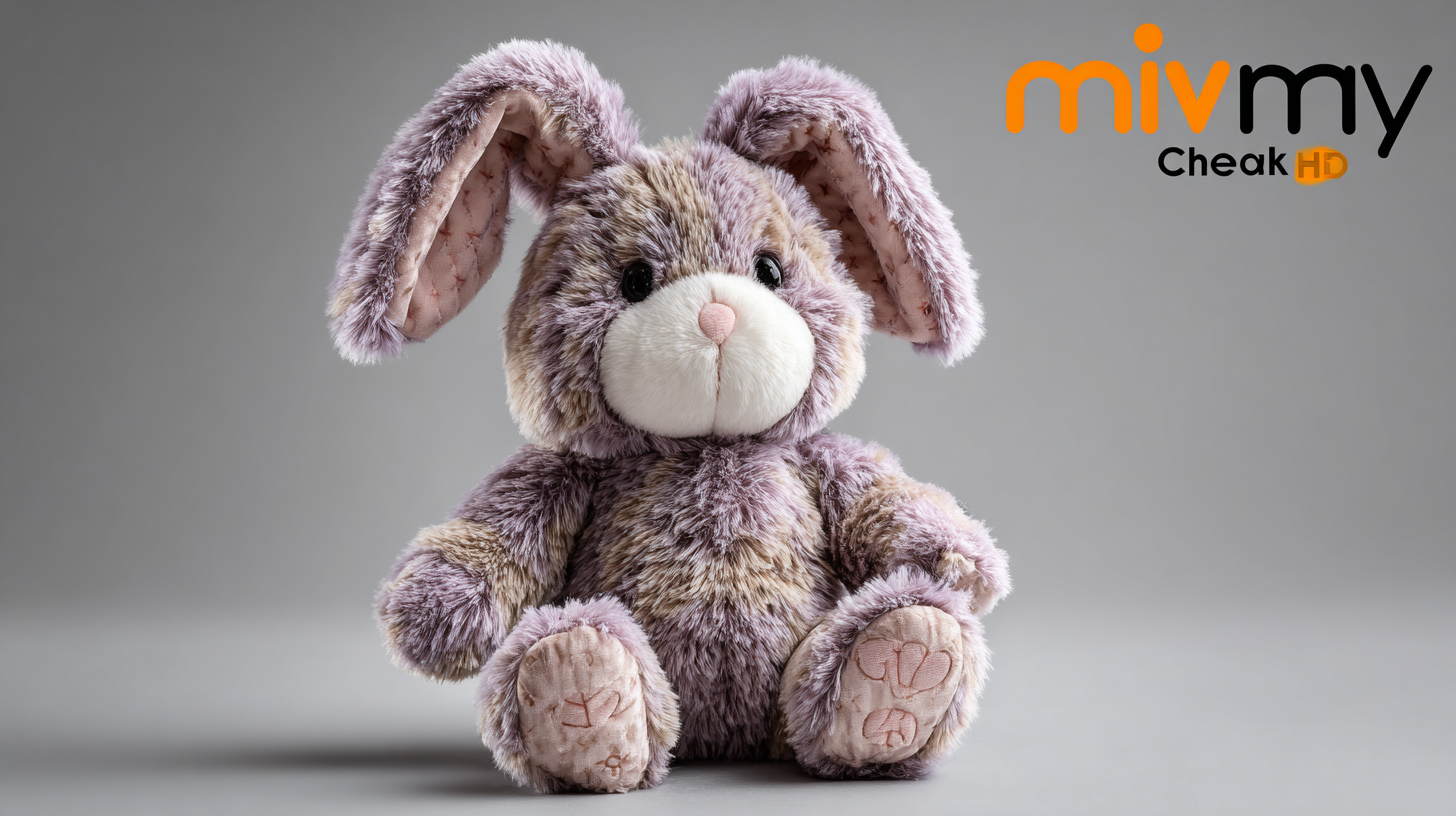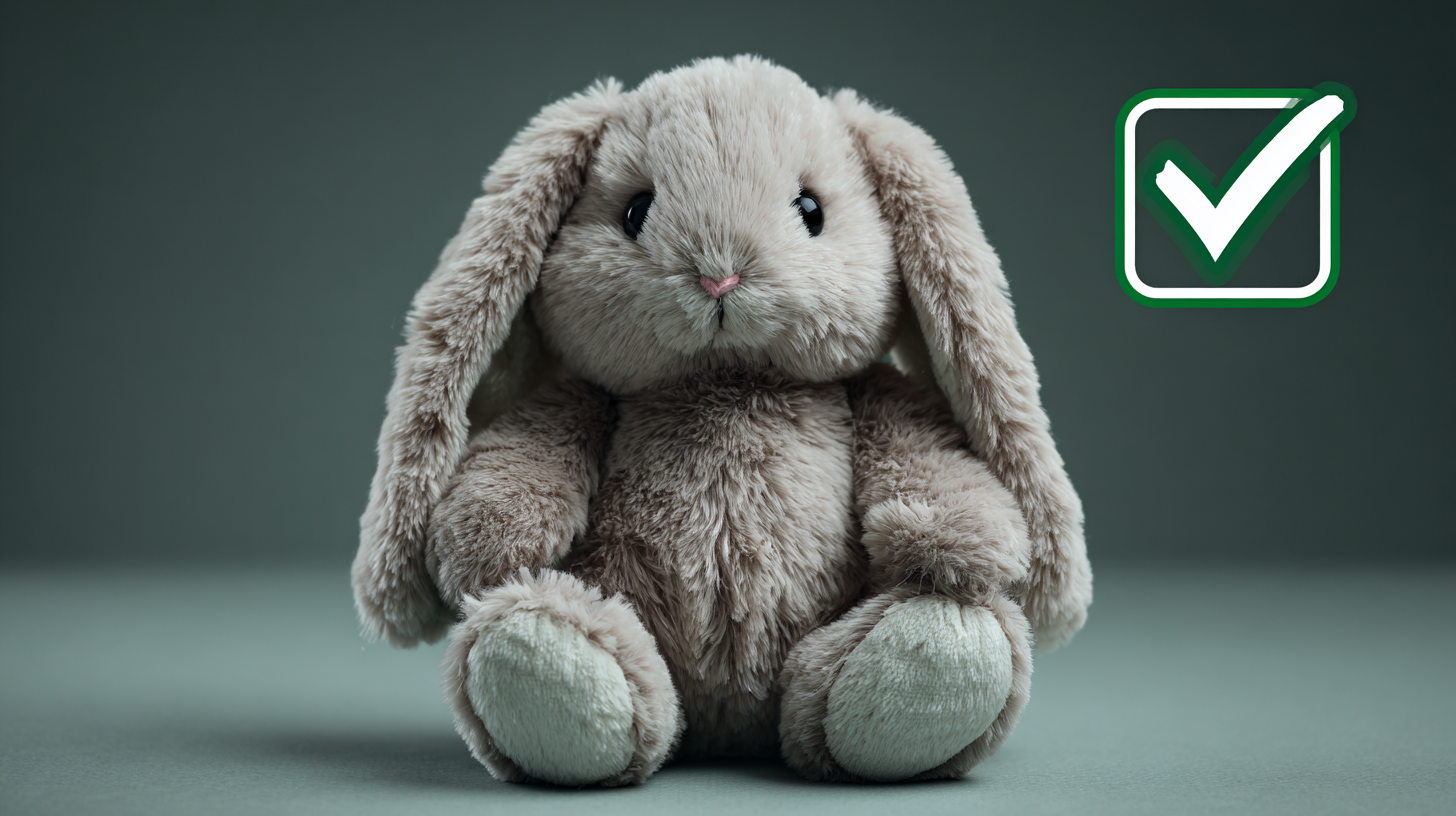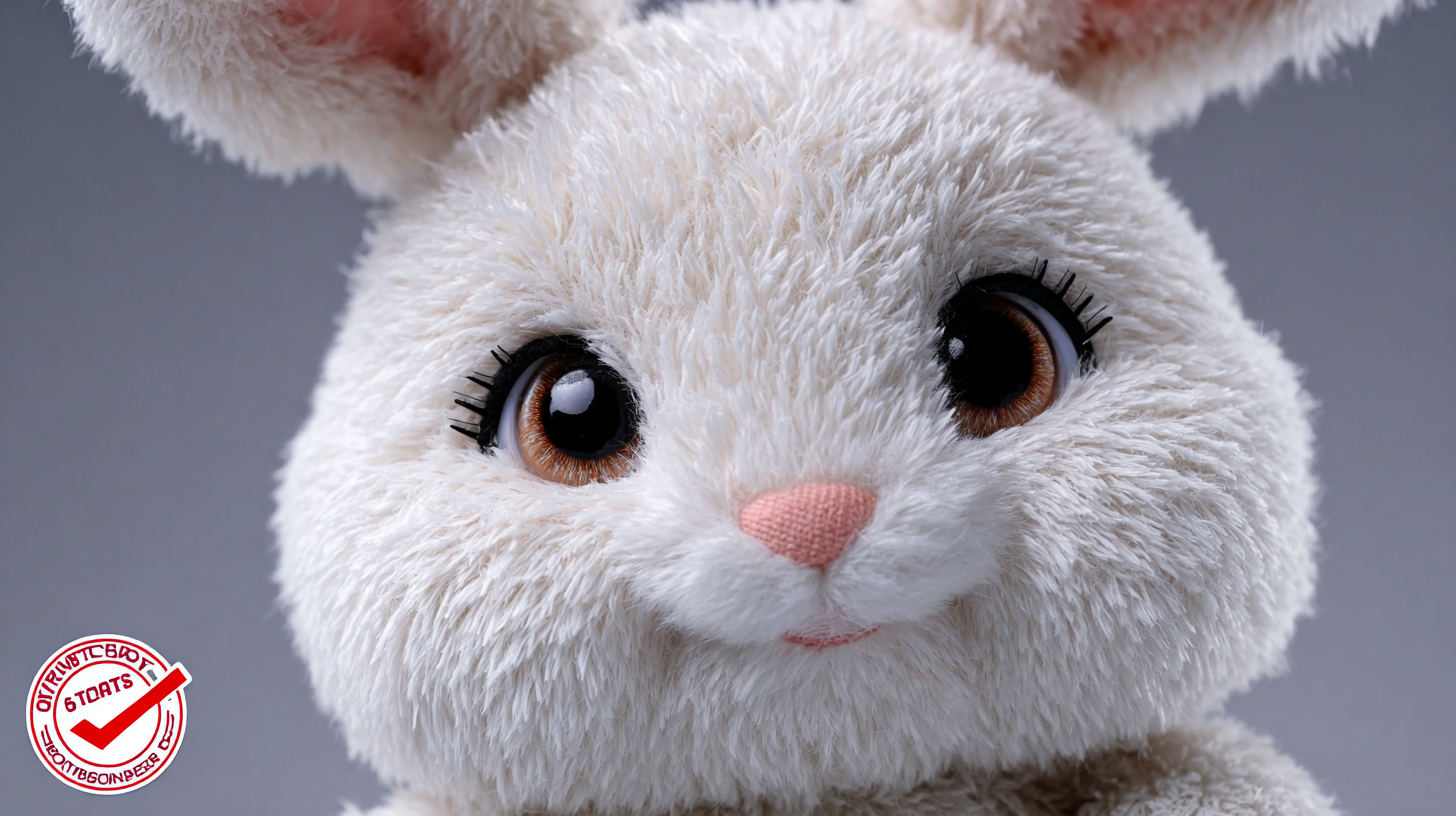In recent years, the demand for Bunny Soft Toys has surged, reflecting a growing trend in the children's toy market. According to a report by MarketWatch, the global plush toys market is anticipated to reach approximately $24 billion by 2027, with a significant portion driven by the popularity of unique and customizable soft toys. This exponential growth highlights the importance of sourcing high-quality Bunny Soft Toys that meet both consumer preferences and safety standards.

However, businesses often encounter various challenges when selecting suppliers, from inconsistent product quality to compliance with international safety regulations. Understanding these problems is crucial for retailers aiming to capitalize on this lucrative market, ensuring they provide not just adorable, but also safe and durable Bunny Soft Toys that resonate with their young customers and their parents alike.
When sourcing bunny soft toys for your business, it’s essential to identify common issues that can impact quality and safety. One significant concern is moisture, which can lead to mould growth if toys are stored improperly. Ensuring that your sourcing process includes proper moisture control measures is crucial. This involves assessing supplier storage conditions and implementing strategies to keep products dry during transportation and warehousing.

Moreover, adopting a circular economy approach is becoming increasingly important in the toy industry. By choosing suppliers who prioritize sustainable practices, businesses can mitigate issues related to waste and promote environmentally friendly products. A Romanian start-up exemplifies this shift by focusing on circular business models that reduce environmental impact while still delivering quality products. Incorporating these principles not only enhances the appeal of your bunny soft toys but also addresses common sourcing challenges effectively.
When it comes to sourcing the best bunny soft toy for your business, quality control is paramount. Manufacturing plush toys, particularly ones designed to foster emotional intelligence in children, poses unique challenges. One significant concern is ensuring that the materials used are non-toxic and safe for children. Recent news highlights how safety issues have arisen in the toy industry, prompting brands to be more vigilant about quality checks to avoid recalls and negative press.
Moreover, as toys become more interactive, incorporating features like voice recognition and emotional responsiveness, manufacturers must pay attention to the durability and reliability of these technologies. Ensuring that these advanced features work seamlessly without compromising the safety and enjoyment of the toy is essential. Companies must establish rigorous testing protocols to identify potential defects early in the production process, thereby safeguarding their reputation and fostering customer trust. By addressing these quality control challenges head-on, businesses can create engaging and safe bunny soft toys that resonate with children and parents alike.
When sourcing the best bunny soft toy for your business, understanding customer preferences is crucial to ensure your design resonates with your target audience. Many consumers seek plush toys that evoke feelings of nostalgia and comfort, often looking for designs that remind them of their childhood. Therefore, incorporating classic elements such as floppy ears, a cuddly body, and expressive facial features can appeal to both children and adults alike.

Additionally, it's essential to consider the materials and colors that attract modern buyers. Eco-friendly fabrics are becoming increasingly popular as customers are more environmentally conscious. Offering a variety of colors can also enhance the appeal, as some customers may prefer pastel tones for a softer look, while others might opt for vibrant hues that stand out. By aligning your bunny soft toy design with these preferences, you not only cater to the aesthetic tastes of your clientele but also ensure that your product contributes positively to perceived value in an increasingly competitive market.
When procuring bunny soft toys for your business, navigating logistics and supply chain challenges is crucial. Recent reports indicate that approximately 70% of supply chain disruptions stem from inadequate logistics planning. These issues can lead to unforeseen delays and increased costs, which directly affect your ability to meet customer demand. For instance, the Global Supply Chain Management Report 2022 highlighted that 61% of toy manufacturers faced significant shipping delays, impacting their seasonal sales targets.
Sourcing bunny soft toys requires a robust understanding of the supply chain's intricacies. According to the Toy Association's 2023 Industry Overview, global toy imports have surged by 10% year-over-year, emphasizing the need for efficient logistics strategies. Companies that leverage forecasting tools and maintain strong relationships with suppliers can mitigate risks associated with delays. Moreover, adopting technology-driven solutions, such as real-time tracking and inventory management systems, can enhance visibility across the supply chain, ensuring that your bunny toy products arrive on time and remain competitively priced in the market.
| Criteria | Details | Challenges | Solutions |
|---|---|---|---|
| Material Quality | Soft, non-toxic fabric | Varied quality from suppliers | Conduct quality assurance tests |
| Design Options | Various sizes and colors | Limited design innovation | Collaborate with designers |
| Supplier Reliability | On-time delivery commitments | Frequent delays | Establish strong relationships |
| Cost Management | Competitive pricing | Rising production costs | Bulk ordering discounts |
| Compliance and Safety | Meets safety regulations | Non-compliant products | Regular audits and certifications |
| Shipping Logistics | Efficient shipping options | High shipping costs | Negotiate with shipping providers |
When sourcing bunny soft toys for your business, it's crucial to navigate the complex landscape of safety standards and regulations. According to the Toy Industry Association, approximately 70% of toy recalls in the past years have been due to safety compliance issues. To avoid potential hazards, familiarize yourself with regulations set forth by governing bodies such as ASTM International, which outlines safety requirements for toys sold in the U.S. Ensure that your potential suppliers can provide documentation proving that their products meet these safety standards.
**Tips:** Always request third-party test reports to validate compliance with safety tests like the ASTM F963 for toys. Moreover, consider the age recommendations for each soft toy, as certain features may not be suitable for younger children.
Another essential aspect is to be aware of restricted materials, such as BPA, which is often found in plastic components. The Consumer Product Safety Commission (CPSC) mandates strict guidelines on the use of certain chemicals in toys, thus prioritizing consumer safety. By opting for suppliers who focus on eco-friendly, safe materials, you'll not only comply with regulations but also appeal to the growing consumer interest in sustainable products.
**Tips:** Look for certifications, such as the CE mark or EN71 compliance, that indicate adherence to European safety standards, an important consideration if you're planning to reach an international market.
This chart illustrates the key safety standards and regulations to consider when sourcing bunny soft toys for your business. The data reflects the percentage of compliance reported for various safety standards.
